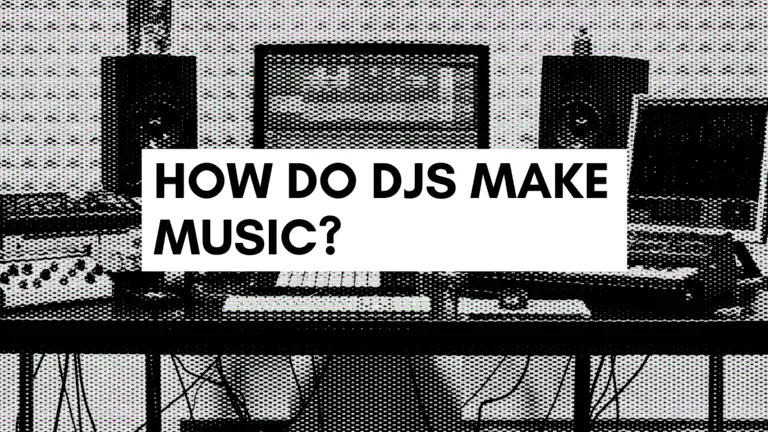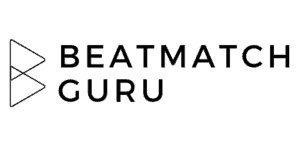
Have you been a DJ for a while now and now have a peaked interested in making your own music? I’ve been DJing for a long time now and have made music on and off over the years.
How Do DJs Make Music?
To make music a DAW is required, a DAW stands for a Digital Audio Workstation which is a software in which audio sounds can be crafted into finished songs and music tracks. DAW examples include Logic, Ableton, Cubase and FL Studio. Sounds can be recorded into DAWs by using live instruments but also MIDI notes from a MIDI keyboard controller.
Let’s have a look at the areas in which DJs can make music, it’s really no different to a music producer making music. Let’s explore areas including the music production software, types of music production tracks and ideas to get you on your way.
Pick a DAW (Digital Audio Workstation
Firstly picking a DAW is essential to getting started in making music on a laptop or desktop computer.
Popular DAWs include:
- Ableton Live
- Logic Studio
- Cubase
- FL Studio
- Reason
- GarageBand
All the DAWs have different designs and layout in how they are used but essentially all offer the same functionality to achieve the end result.
All DAWs come with a mixer to manipulate the levels and effects of each track, plus there’s a layout where you can see each track and the sum of it’s parts.
Pricing of Digital Audio Workstations can be high depending on the version and brand that you buy. If you’re just starting out then you can get hold of GarageBand on a MacBook for free if you have MacBook. Ableton offer a free version for a short period of time and also an intro version at an affordable price of around £70.
I’ve used all of the DAWs listed above in the bulleted list. I’d recommend Ableton Live out of all of them. The interface is simplistic but offers enough complexity to make polished music production.
The added benefit is that it’s quick to pick up and learn. Some of the other DAWs have quite a steep learning curve and complex functionality which certainly put me off in the past.
Studio Setup
A studio setup is usually made up of:
- a laptop using a DAW
- audio interface (also known as an external sound card)
- MIDI keyboard to record in chords and beats
- lastly some decent speakers / headphones to listen to your music productions.
Studio setups can be minimalistic depending on the capabilities and quality of your laptop or desktop computer. For example you might not need an audio interface as the sound card built in can be high quality.
You can have a music production setup that’s basic but effective without spending thousands or your hard earnt cash.
Music Samples & Synths
To make music, a music producer needs samples and synths to build beats, sections of melodies with melodic basslines.
Samples
It’s easy now days to buy and build up a sound bank of music samples that are professionally mixed for maximum quality. I get my samples from Unison, Ableton and Loopmasters, but there are lots other websites to get great professional sound packs.
You can buy sample packs which contain multiple samples which come in the form of single music hits, such as a kick drums. Also sample packs often contain music loops, for example piano loops or drum loops. Be careful though as some samples are only compatible with certain DAWs.
Synths
Synthesizers generate different sounds all music producers to use for creating melodies and chords to form a complete piece of music.
The music synths that I’ve commonly used are the built in synths within Ableton, Komplete by Native Instruments which is a multi pack containing synths like Massive, and finally Serum. All of which provide great sounds with a wide range of sounds to craft different music genres.
Think of samples and synths as the different colours of paint that you want to use and the DAW is the background in which you are painting onto.
Music Theory & Song Structure
Music theory is a great skill to have for certain elements of how to build music.
Key areas of music theory involve:
- Keys: Major and Minor
- Chords and how to create them
- Chord progressions
- Time signatures
- Notation e.g. whole notes, half notes, quarter notes, and so on
- Velocity to add a human feel when adding MIDI notes into a DAW
A lot of the aspects above are what music producers use without thinking most of the time because after a while they because the bread and butter to making music.
You can easily learn these areas of music theory above online with YouTube or an online course.
There are a few MIDI chord progression packs out there to download at a price. These chord packs allow producers with a lack of music theory to drag and drop different chord variations into their DAW to build amazing sounding melodies.
Each song needs structure and most music producers usually create an outline of the sections before they start making the music. This can really help as all genres seem to have a slightly different structure.
By structure I mean:
- Intro
- Breakdown
- Build up
- Verse
- Chorus
- Breakdown
- Verse
- Outro
Remixes
DJ producers seem to get involved in remixes at some point in their creative careers. Remixes are great because the turn around time to making them is arguably quicker than making your own track from scratch.
The sum of all of its parts exist, it’s just how you rearrange them and add in a bit of your own creativity and audio flavour into the mix.
Plus the added benefit is if the song is already popular, such as the lyrics, your audience listening to your DJ sets will recognise the remix.
Remixes can be achieved by finding stems online and downloading the parts of those tracks. Stems are separated tracks from the original music track. Stems are separated tracks which are grouped together by nature, for examples drums is one stem, vocals is another and bassline is another.
Producers can use these to then chop, sample and gain inspiration by finding the same key of the melody too.
Soundcloud is a great platform to find remix competitions or simply stems that existing artists and producers are offering up to be remixed.
Mixing & Mastering
Music producers use a process call mixing and mastering to polish of the levels and quality of sound ready to be played out to the world, e.g. radio, club speakers and headphones.
Mixing
Mixing audio is the process of blending various sounds together to form a cohesive flowing single sound. This is achieved through using various tools and techniques which include using EQ, compression, chorus, delay and reverb. These are only a few areas in which mixing can occur.
To learn more Landr have a great article on how to mix for music production.
Mastering
Mastering is the final step in the music production process. The main goal is to balance out the elements within the music track to allow for the final music to be played on a variety of formats, radio, tv, headphones etc.
Mastering is literally the polishing process to get the final music track to be released to world at the highest quality sound.
To learn more check out another article from Landr about how mastering works. Landr also offer a service where you can upload your music and they will master the music for you. A lot of artists and DJ producers seem to be using this type of service these days.
Related Questions
What do most DJs use to make music?
To make music a DAW software (Digital Audio Workstation) is required. Popular DAWs include Logic, Ableton, Reason, FL Studio, Pro Tools and Cubase. Hardware such as a MIDI keyboard controller, mixer, cables, microphone and audio interface can be used to record audio and MIDI onto a DAW.
Do DJs have to make their own music?
DJs don’t necessarily have to make their own music. By nature a DJs job is to play an array of music produced by other artists. DJs can produce their own music to add into their DJ sets.
Where do DJs get their songs?
DJs can buy music from iTunes, Beatport, Juno and Amazon for example. DJs can stream music and sign up to subscription record pools from websites including Soundcloud, DJCity, Beaport, Tidal, CDpool. Record label websites are great website to buy music too.
